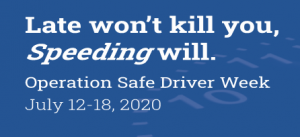With hurricane season upon us, it’s time to talk about inclement weather. As a former dispatcher, I have seen many severe tractor-trailer accidents that easily could have been avoided. I used to pass around a phrase to my drivers any time the weather started to turn: “It’s more than rain.”
“It’s more than rain.”
I repeated this phrase often; I wanted it to resonate with my fleet. I always wanted it to be in the back of their mind. At any moment, even a sprinkle shower on a sunny day can turn into a life or death situation.
And in one case, it did.
Jeremy Reynolds was a Rookie
A serial over-achiever striving to prove himself. He always performed to the best of his abilities, but sometimes to his own detriment.
 After delivering a load of flash-frozen veggies to a packaging plant in Nebraska, Jeremy called in to report his delivery. We made small talk about the trip and I started looking for another load. The only load I could find near his location would require 85 miles of deadhead to pick up, but he wanted to run it anyway.
After delivering a load of flash-frozen veggies to a packaging plant in Nebraska, Jeremy called in to report his delivery. We made small talk about the trip and I started looking for another load. The only load I could find near his location would require 85 miles of deadhead to pick up, but he wanted to run it anyway.
He mentioned some drivers down the highway were talking about a storm that was forming right along that route. There had been no storm reports or warnings from my company’s weather department. On the surface, it seemed there would be nothing to worry about.
I asked him to consider three things in this circumstance:
- Boots on the ground drivers were warning of bad weather along the route.
- The route was a long straight stretch of highway along the flatlands of Nebraska.
- His trailer was now empty.
I told Jeremy that since he was the one behind the wheel, it was his call. I also asked him to consider our mantra, “It’s more than rain.”
I put Jeremy in charge of his truck, and I supported his decision. He decided not to take the risk. I rescheduled the pickup for the next morning and he started his 10.
The Next Morning
I arrived at work to an email encouraging all dispatchers to check on all drivers currently not moving in the Midwest. Overnight, the storm winds raged, and 3 trailers had been blown over.
It wasn’t the rain or the wet roads that led to these accidents. It wasn’t a flooded street or downed branch. It was the wind. One strong gust of wind was all it took to catch these drivers off guard and push them off the highway. The exact highway Jeremy would have been traveling.

Thankfully, the drivers were not injured. Two of the trailers were loaded, however, costing their companies thousands of dollars in OS&D and damaged equipment.
I called Jeremy immediately to see if he was ok. He told me he was surveying the damage along the highway while driving to the pickup location. He saw one of the trailers, still on its side. It was more than rain. He and I both learned a lesson that day. Yes, we turned down a load, but even though it seemed like a small rain shower, the unforeseen risks turned out to be much higher.
The Lesson
 Make sure your fleet managers know it’s ok to shut their drivers down in bad weather. On-time loads should never take precedent over a driver’s safety.
Make sure your fleet managers know it’s ok to shut their drivers down in bad weather. On-time loads should never take precedent over a driver’s safety.
Fleet managers should then empower their drivers to make sounds judgement calls about operating in inclement weather.
I was often questioned about my decision to give all the power to the driver in these situations.
“What if your drivers take advantage of it, just to get some time off. What if they shut down when they could have made the delivery on time?”
My response was always a resounding: “So, what?”
So, my driver felt it was better to shut down than risk driving in weather that made him uncomfortable. So, we picked up a load a couple of hours late. Everyone was safe.
The benefits of empowering my drivers more than outweighed the risk:
- – No loads were damaged due to an accident.
- – My driver was not injured due to an accident
- – My driver did not injure any other person on the highway.
- – All equipment remained undamaged.
Most importantly,
- – My driver and I bonded. Trust was born out of the situation.
How IWS Can Help
Current Infinit-I Clients:
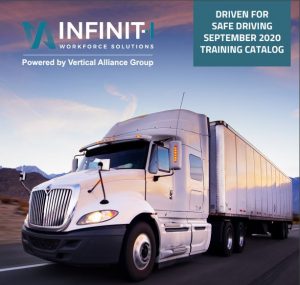 Check out the September 2020 Catalog release for current courses specifically designed to encourage safe driving in inclement weather. There are also existing training courses to prepare your drivers for emergencies such as rollovers, runoffs, jackknifes, etc.
Check out the September 2020 Catalog release for current courses specifically designed to encourage safe driving in inclement weather. There are also existing training courses to prepare your drivers for emergencies such as rollovers, runoffs, jackknifes, etc.
Contact your CSR today! We can assign these videos, along with any of your custom content, to your entire fleet! The inclement weather conversation must be ongoing; get your driver’s talking about it.
Future Infinit-I Clients:
Take a look at the catalog linked here. We offer 850+ safety training videos designed to enhance safety culture and create safer drivers.
And now, take advantage of our 30-day complimentary trial. You’ll be able to train your entire fleet at absolutely no cost. For more information, click here for your trial.
About the Author
Lindsay Presley is the copywriter at Infinit-I Workforce Solutions. Specializing in the trucking industry, Lindsay has spent her professional career studying industry best practices. From recruiter to dispatcher to fleet manager to trainer, Lindsay knows the in’s and out’s of trucking.
She brings her experience to the Infinit-I Workforce Solution blog through years of front-line experience. Throughout her career, she states the most rewarding experience was supporting her favorite truckers, running miles, and moving freight.
Lindsay.Presley@verticalag.com
Want to know more?
My Best Friend, the Trucker: How We Transformed the Dispatcher & Driver Relationship
Spotted Lanternfly: Operating Without a Permit Could Cost You $20,000
Nuclear Verdicts Entice Fraudsters in New Trucking Exploitation Scheme
Top 5 Surprising Ways Lawyers Attack Trucking Companies – Know Your Risk



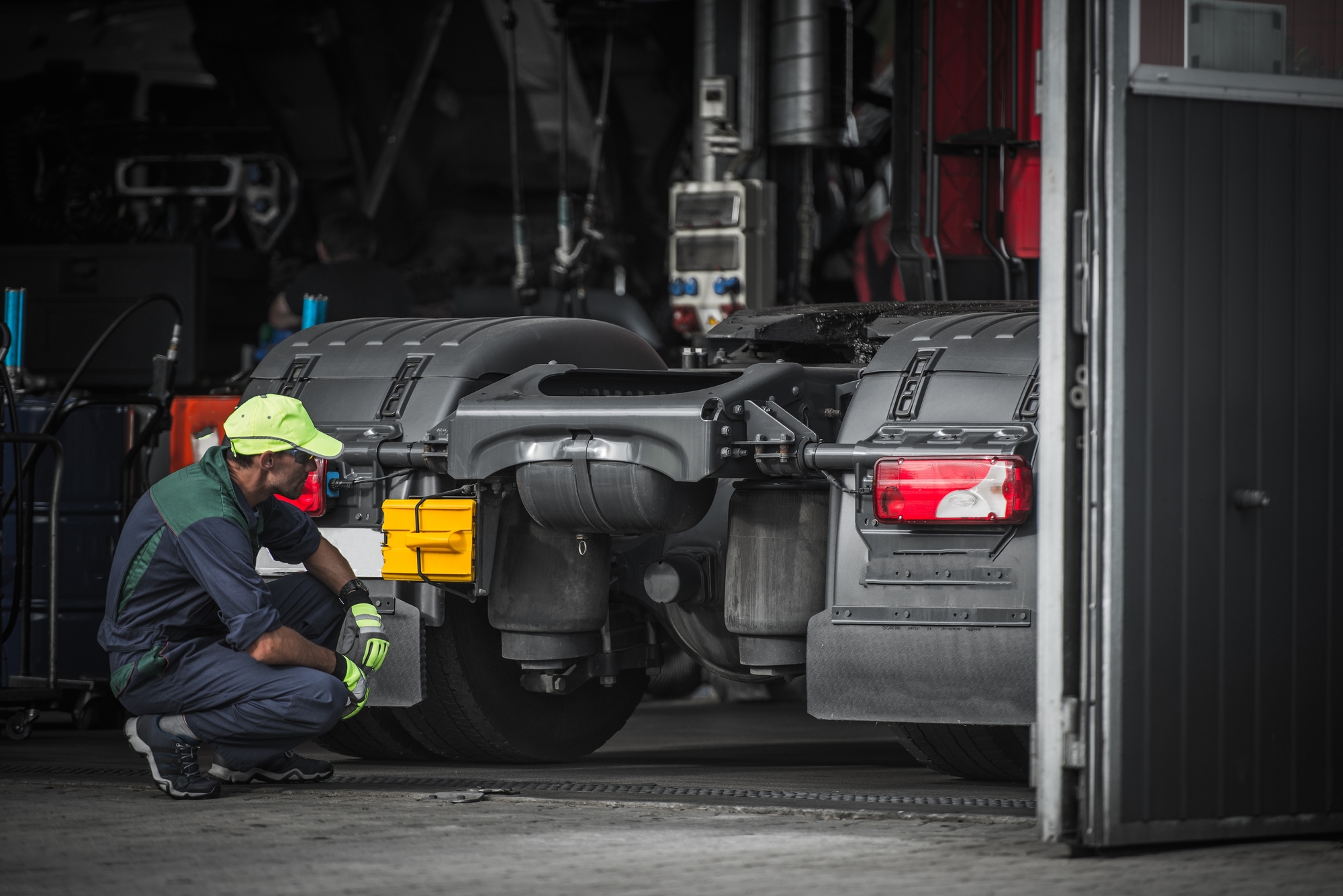




 This detailed operation involved a driver, or “slammer,” who was the soon to be victim of the accident. A “spotter” stayed behind and acted as an impartial witness but was actually a plant. Labeaud was the driver, usually with other passengers on board; his would either sideswipe the trailer or stage a “near-miss.” After the incident, Labeaud fled the scene in a getaway car to avoid being identified in multiple trucking lawsuits. The spotter flagged down the trucker, who was often unaware of an incident, and filed a fraudulent accident report when police arrived.
This detailed operation involved a driver, or “slammer,” who was the soon to be victim of the accident. A “spotter” stayed behind and acted as an impartial witness but was actually a plant. Labeaud was the driver, usually with other passengers on board; his would either sideswipe the trailer or stage a “near-miss.” After the incident, Labeaud fled the scene in a getaway car to avoid being identified in multiple trucking lawsuits. The spotter flagged down the trucker, who was often unaware of an incident, and filed a fraudulent accident report when police arrived. Communicate frequently and clearly about and updates or changes to your accident policy and obtain acknowledgment signatures. This will not only protect your drivers in the event of an accident, it will protect your company from risk.
Communicate frequently and clearly about and updates or changes to your accident policy and obtain acknowledgment signatures. This will not only protect your drivers in the event of an accident, it will protect your company from risk.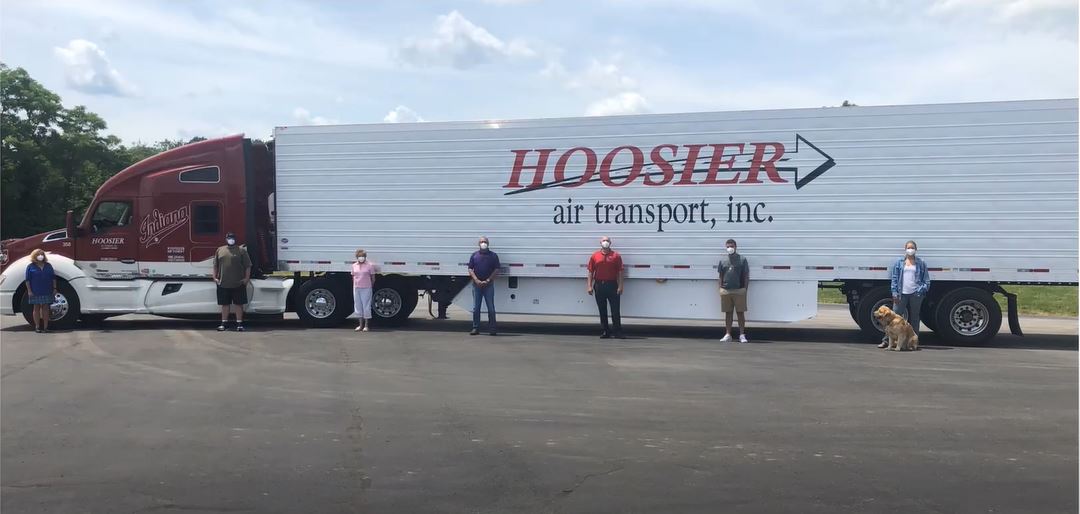



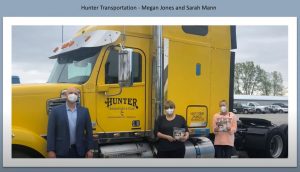


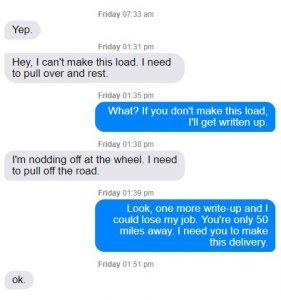

 Let’s say your driver is eating a big, greasy cheeseburger while driving down the highway. After driving over a small pothole, the driver drops a pickle on the tractor seat. The driver leans over to place the burger onto the passenger seat and begins the pickle search.
Let’s say your driver is eating a big, greasy cheeseburger while driving down the highway. After driving over a small pothole, the driver drops a pickle on the tractor seat. The driver leans over to place the burger onto the passenger seat and begins the pickle search.


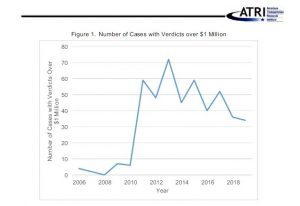

 Your frequency, consistency, and focus on safety training will prove your commitment to safety. Enhance your safety culture now and positively change driver behaviors before you are faced with legal trouble. Not only will you proactively protect your company from nuclear verdicts, you will be protecting your drivers from injury or death.
Your frequency, consistency, and focus on safety training will prove your commitment to safety. Enhance your safety culture now and positively change driver behaviors before you are faced with legal trouble. Not only will you proactively protect your company from nuclear verdicts, you will be protecting your drivers from injury or death.


 Truckers do a tough job, and many times, they don’t even receive recognition for it. They stay on the road sometimes for weeks or even months at a time away from family. Truckers work for up to 11 hours per day, day in and day out. This takes its toll, and we have to recognize the sacrifice that truckers make every day helping to keep the American economy in blossom. We have to salute those on the frontlines because, without them, our way of life would change greatly.
Truckers do a tough job, and many times, they don’t even receive recognition for it. They stay on the road sometimes for weeks or even months at a time away from family. Truckers work for up to 11 hours per day, day in and day out. This takes its toll, and we have to recognize the sacrifice that truckers make every day helping to keep the American economy in blossom. We have to salute those on the frontlines because, without them, our way of life would change greatly.


 They experienced numerous infrastructural challenges along the way. The convoy damaged bridges, became stuck off-road, and damaged equipment as a result of roadway conditions. The trip across the country took two months.
They experienced numerous infrastructural challenges along the way. The convoy damaged bridges, became stuck off-road, and damaged equipment as a result of roadway conditions. The trip across the country took two months.











